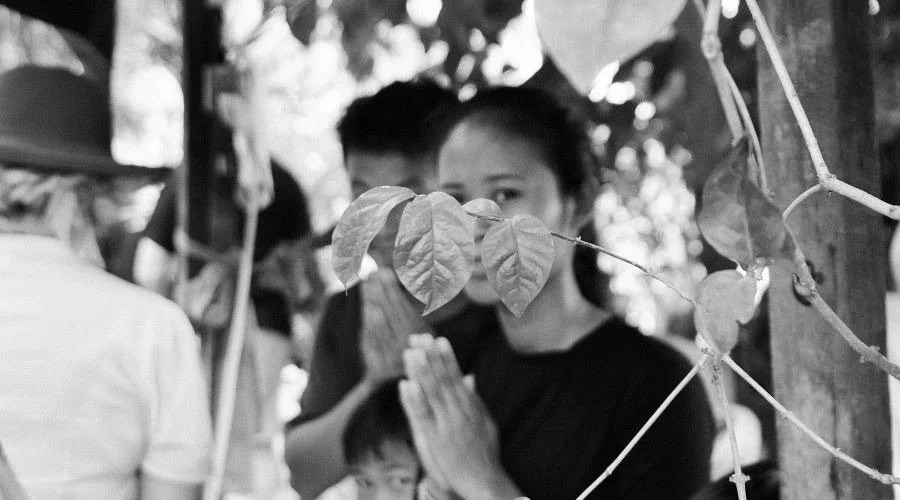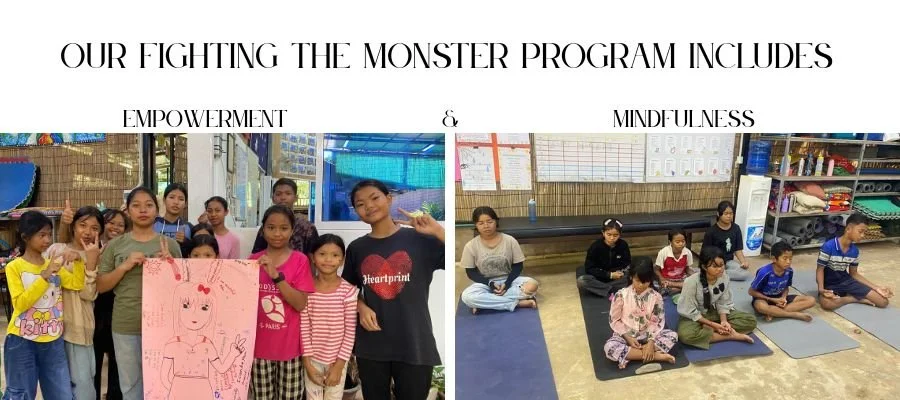Silent September: “Let Everyone Be Heard”
Six years ago, Silent September began as a deeply personal experiment. Marking a milestone birthday, our co-founder, Wendy, embraced silence not as withdrawal but as a gesture of empathy toward those who live unheard.
That first effort wasn’t even in September, but it planted a seed.
The following year, she moved it to September and chose sixty hours of total silence—still just her. The next year, Wendy and Garry’s daughter Samm joined. Then a friend or two. Each year the circle grew, and the hours stretched until, this year, we had a Silent Army blanketing the entire month, with people covering every single hour of September.
Our purpose is solidarity: to hold up a small mirror to the pain of being unheard and to raise funds for counseling and community programs.
This practice is never meant to equate our chosen quiet with the sustained and oppressive silences many Cambodians endure. In communities where ten people may share a single room, where trauma from civil war and genocide lingers, and where mental-health services are scarce, silence is more an infliction than a choice.
It becomes your daily life, the result of many social and generational circumstances.
(Pardon us while we get a bit wonky here.)
Experts tell us that silence can carry a weight beyond the absence of words. Neuroscientist Isabelle Mansuy notes that severe life experiences can leave biological “imprints” on gene expression, thereby shaping stress responses in subsequent generations.
Research also shows that parental trauma can influence how children regulate emotions and respond to fear.
Psychologists describe how families often pass down unspoken “survival messages”—don’t speak up, don’t draw attention—that were once protective but become barriers to self-expression. In cultures shaped by war and mass trauma, those messages can settle into all the nooks and crannies of life, making it difficult to find or trust one’s own voice.
Against this backdrop, the reflections of our Silent Army take on greater resonance. “You can get lost in your own thoughts,” one participant wrote after twenty-four hours without speech. “I worried about disappointing people when I didn’t answer.”
A teacher who disconnected completely over a weekend admitted, “I realized how much being ‘online’ takes control. I’ve resolved to regain power over this because it sneaks up on us—being available all the time.”
Others found unexpected emotions surfacing. “I sat with the thought that no one could possibly understand my pain,” one person shared. “I was angry, but I knew I could talk tomorrow. But what if I couldn’t? What if no one would hear me?”
Another reflected, “I thought my hardest thing would be concern about not meeting others’ needs. Instead, the silence brought an odd kind of clarity. I noticed how quickly the mind fills the void with worries and memories.”
A participant who had recently suffered a brain injury and job loss wrote, “It is such a vulnerable feeling. Then I realized that even if I could express my pain, no one would truly get it, so it ends up being easier just not talking.”
Many spoke of the surprising comfort of knowing that others were with them in solidarity.
“Every time someone steps up, you feel less alone,” one person wrote. “The more you share a problem, the smaller it becomes.”
This year’s new format had more people stepping up to share the challenge and amplify awareness of the problem. Each participant’s silence became a shared responsibility, a quiet chorus that echoed far beyond Cambodia to help shrink the problem.
From Garry: “ What I discovered in my silence was that I didn’t want to be around people, didn’t want to engage because I could not…speak up, have a voice. My whole life, I have always spoken up for what I believe in, always had the freedom to say what I want…that there are millions of children, women, and men who do not have these freedoms, hit me even harder today. We can all do better. Listen to what someone has to say. Value others’ opinions. Let everyone be heard.”
Silent September has grown from a single, solitary act into a movement of shared determination. Next year, we will further expand the Silent Army, creating more hours of quiet solidarity - more than one person can take on a time slot! - and raising additional funds for mental health programs.
In silence, we feel the shadow of what it means to have no voice. In solidarity, we help free those voices that yearn to be heard.
Just imagine what they have to teach us!
Our deepest thanks to those of you who joined us in our silence and to those who provided financial support - we are all part of the Silent September Army!
With love,
Your Heartprint Team


